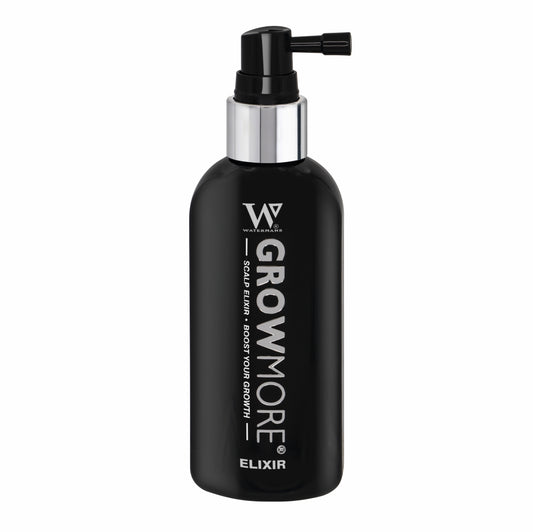Unlocking the Secrets of Hypothyroidism: Symptoms, Causes, and Effective Management Strategies
Share

Hypothyroidism is a condition that occurs when the thyroid gland fails to produce enough thyroid hormones. This can lead to various health issues, including hair loss — a topic that affects many individuals. Understanding hypothyroidism can empower those who may be struggling with this condition and help them seek the appropriate treatment.
What is Hypothyroidism?
Hypothyroidism, known as underactive thyroid, is a disorder in which the thyroid gland, located in the neck, does not produce sufficient amounts of thyroid hormones. These hormones are crucial for regulating metabolism, energy levels, and overall bodily functions. When hormone levels drop, symptoms can manifest, which might lead to discomfort and complications in daily activities.
Symptoms of Hypothyroidism
The symptoms of hypothyroidism can vary significantly among those affected. Here are some common indicators to watch for:
Fatigue and Weakness
Chronic fatigue is one of the hallmark symptoms of hypothyroidism. People may feel tired even after getting enough sleep, impacting their productivity and quality of life.
Hair Loss
Thinning hair or hair loss can be troubling to millions. Those with hypothyroidism might notice changes in the texture of their hair or excessive hair shedding. It’s crucial to remember that hair loss can also result from other conditions, so consulting a healthcare professional is advisable.
Weight Gain
Weight gain can occur, despite relatively stable eating and exercise habits. This can be disheartening and may lead individuals to try various diets or exercise programs without success.
Cold Sensitivity
Feeling unusually cold in environments where others are comfortable can reflect a slowed metabolism, a common result of low thyroid hormones.
Mood Swings and Depression
Individuals with hypothyroidism may experience a range of mood changes, from irritability to depression. The connection between hormones and mood is strong, and imbalances can affect mental well-being.
Dry Skin
If your skin feels drier than usual or you experience itchiness, this may be linked to hypothyroidism. The condition can interfere with the skin's oil production.
Constipation
Many individuals with hypothyroidism report digestion issues, including constipation, which can be uncomfortable and frustrating.
Causes of Hypothyroidism
Understanding the underlying causes of hypothyroidism can help in managing and potentially reversing this condition. Here are some common reasons for hypothyroidism:
Autoimmune Disorders
Hashimoto's thyroiditis is one of the most prevalent reasons behind hypothyroidism. In this autoimmune disorder, the immune system mistakenly attacks the thyroid gland.
Radiation Therapy
Individuals who have undergone radiation therapy for head or neck cancers could experience hypothyroidism due to damage to the thyroid gland.
Thyroid Surgery
Surgery to remove all or part of the thyroid gland could lead to a deficiency in hormone production, resulting in hypothyroidism.
Medications
Certain medications, particularly those for mood disorders and cancer treatments, may impact the thyroid's ability to function normally.
Iodine Deficiency
Iodine is essential for thyroid hormone production. A lack of this nutrient in the diet can result in hypothyroidism.
Congenital Conditions
Some individuals are born with an underactive thyroid or may develop hypothyroidism in early childhood.
Diagnosing Hypothyroidism
To determine if you have hypothyroidism, healthcare providers typically conduct blood tests that measure levels of TSH (Thyroid-Stimulating Hormone) and T4 (thyroxine). A high TSH level alongside a low T4 level typically indicates hypothyroidism.
Regular Check-Ups
If you experience symptoms consistent with hypothyroidism, regular check-ups become essential. Timing can play an important role, as early detection means quicker treatment, leading to better outcomes.
Effective Management Strategies
Managing hypothyroidism involves various approaches that can lead to improved health and well-being. Here are some strategies to consider:
Hormone Replacement Therapy
The primary treatment for hypothyroidism is hormone replacement therapy using medications such as levothyroxine. This synthetic thyroid hormone helps restore hormonal balance.
Nutritional Considerations
A well-balanced diet can play a role in managing symptoms. Incorporating foods rich in iodine, selenium, and zinc can be beneficial for thyroid health.
Exercise
Regular exercise can help increase energy levels, reduce stress, and improve mood, combating some of the fatigue and weight gain associated with hypothyroidism.
Stress Management
Stress can exacerbate symptoms. Techniques like yoga, meditation, and mindfulness can contribute to overall wellness.
Impact on Hair Health
Hair Loss Treatment
For those experiencing hair loss due to hypothyroidism, it's critical to address the underlying hormonal imbalance. Beyond medication, consider natural solutions like Watermans Grow Me Shampoo, which is renowned for energizing the scalp and volumizing hair from the roots.
Packed with ingredients like biotin and caffeine, this shampoo can help support hair growth while addressing the underlying concerns of hair loss. If you're facing issues with hair thinning or loss, trying Watermans Grow Me Shampoo may just be the solution you need.
Did You Know?
-
Thyroid Disorders are Common: Hypothyroidism affects a significant portion of the population, particularly women over the age of 60. - Autoimmune Connection: Individuals with autoimmune disorders, like diabetes or lupus, are more prone to developing hypothyroidism.
-
Lifestyle Matters: Studies show that managing stress, maintaining a healthy diet, and exercising can positively impact thyroid health and potentially alleviate symptoms.
-
Thyroid Hormones Are Integral: Thyroid hormones play a critical role in brain development, metabolism, and heart health.
-
Low Iron Levels: Low iron levels can exacerbate symptoms in individuals with hypothyroidism, leading to further fatigue and hair loss.
Frequently Asked Questions (Q&A)
Q1: Can hypothyroidism cause permanent hair loss?
A1: Generally, hair loss related to hypothyroidism is reversible with appropriate treatment and hormone regulation.
Q2: How is hypothyroidism diagnosed?
A2: It’s diagnosed through blood tests that measure TSH and T4 hormone levels.
Q3: Can people with hypothyroidism lose weight?
A3: Yes, with proper management and hormonal balance, individuals can lose weight.
Q4: Are there natural remedies for hypothyroidism?
A4: While supplements and dietary adjustments can support thyroid health, hormone replacement therapy is the primary treatment.
Q5: Is hair growth from hypothyroidism reversible?
A5: Yes, addressing the thyroid condition typically leads to improved hair growth and health.
Q6: What supplements should I take for hypothyroidism?
A6: Supplements such as iodine, selenium, and omega-3 fatty acids may benefit thyroid health, but consult a healthcare provider first.
Q7: Can anxiety be a symptom of hypothyroidism?
A7: Yes, it can lead to mood changes, including anxiety and depression.
Q8: How long does it take to notice improvement in thyroid symptoms?
A8: Individuals typically start seeing improvements within a few weeks of starting hormone replacement therapy.
Q9: Is there a connection between hypothyroidism and heart health?
A9: Yes, inadequately managed hypothyroidism can increase cholesterol levels and heart disease risk.
Q10: Can lifestyle changes really impact thyroid health?
A10: Yes, adopting a healthy lifestyle with a balanced diet and regular exercise can positively affect thyroid function and overall health.
Understanding hypothyroidism is a journey that involves recognizing the symptoms, seeking diagnoses, and actively managing the condition. By focusing on lifestyle changes and treatments, individuals can significantly improve their quality of life, including their hair health. For those struggling with hair loss, don’t forget the benefits of Watermans Grow Me Shampoo, a natural solution to support your hair growth journey.



